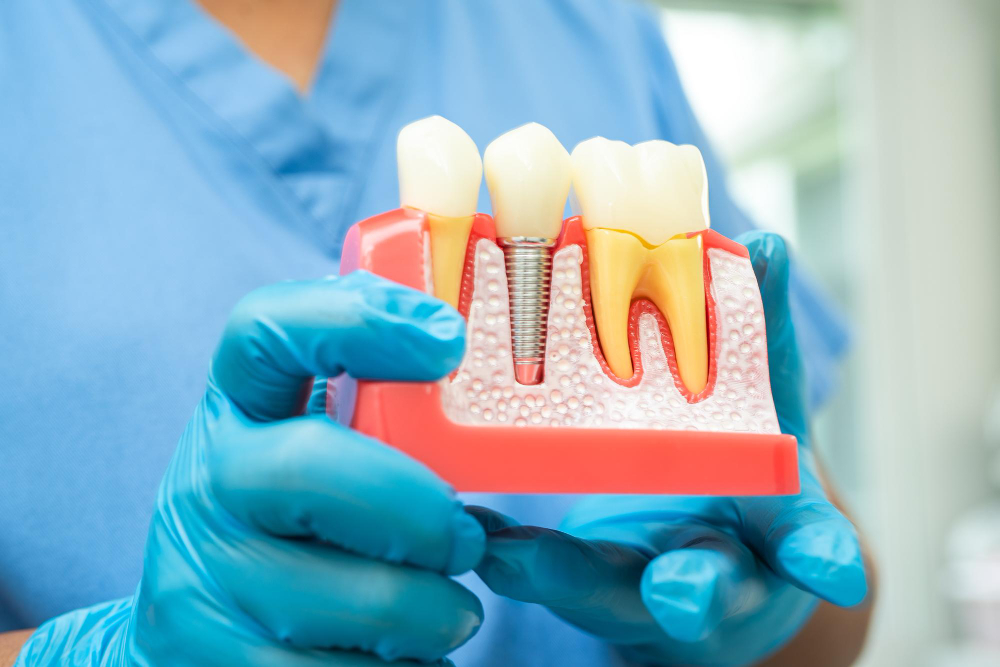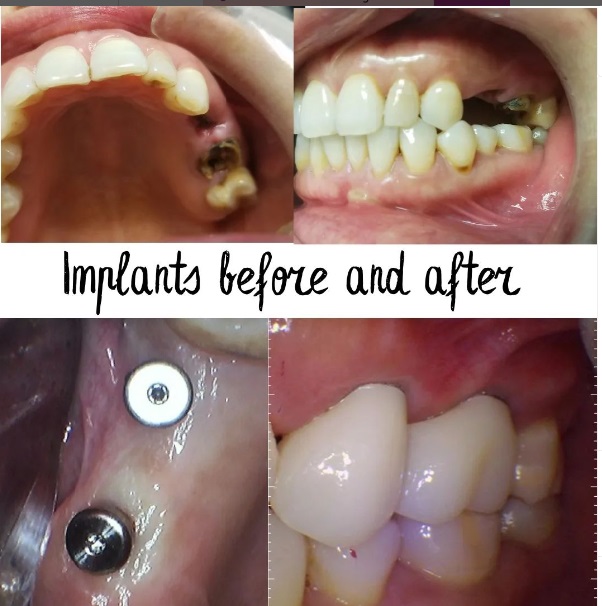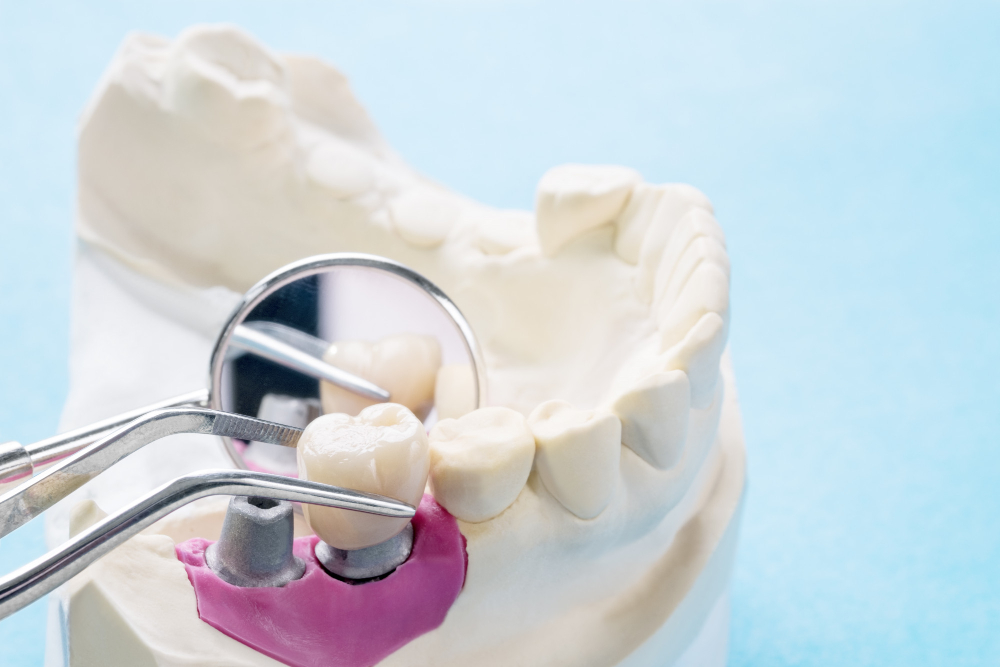
At Hills Dental Group, we understand how much a complete, confident smile matters. If you’ve lost one or more teeth, you don’t have to settle for removable dentures or uncomfortable bridges. Dental implants provide a long-lasting, natural-looking solution for permanent tooth replacement. Our team specializes in safe, effective treatments designed to restore both function and beauty to your smile at our trusted dental implant clinic in San Jose.
What Are Dental Implants?

Dental implants are titanium posts placed into the jawbone to act as artificial tooth roots. Once healed, these posts securely support crowns, bridges, or dentures. Implants look, feel, and function like natural teeth, making them the gold standard for tooth replacement.
Unlike traditional dentures or bridges, implants integrate with the bone, preventing the jaw from shrinking and preserving facial structure. This makes them not just a cosmetic solution but also an investment in long-term oral health.
How Are Dental Implants Done
Patients often ask, “How are dental implants done step by step?” The process typically involves:
This approach ensures both durability and a natural-looking result.
Types of Dental Implants and Which One Is Right for You
At Hills Dental Group, we provide different implant options depending on your needs:
Our team will help determine which type is best for your unique case, whether it’s a single implant or full-mouth restoration.

Dental Implants Procedure: What to Expect
When preparing for a dental implant procedure, patients often want to know what lies ahead. Here’s what to expect:
We’re committed to making every step comfortable and transparent.
Dental Implants Surgery: Step-by-Step Process
The dental implants surgery process is straightforward when performed by an experienced team like ours:
Thanks to modern techniques, downtime is minimal, and patients usually return to normal activities quickly.
Dental Implants vs. Dental Bridges: Which Is Better?
While bridges are a traditional option for tooth replacement, they often require altering healthy teeth for support. Dental implants preserve natural teeth, prevent bone loss, and last significantly longer.
Bridges may be less expensive initially, but implants are more cost-effective long term because they rarely need replacement. If you’re searching for affordable dental implants near San Jose, Hills Dental Group offers financing options to make treatment accessible.
Permanent Tooth Replacement

For patients seeking a lifelong solution, permanent tooth replacement with implants is unmatched. Dentures may slip, and bridges may wear out, but implants provide a secure, natural, and lasting alternative.
Whether you need a single missing tooth replacement or a full arch restoration, our advanced techniques ensure that your smile is as functional as it is beautiful.
Dental Implants Near San Jose
Conveniently located, our clinic is a trusted destination for dental implants near San Jose. With state-of-the-art technology and a highly skilled team, we’ve helped countless patients restore their confidence and quality of life through implants.
Frequently Asked Questions
Is dental implant surgery painful?
+How long does it take to heal after dental implant surgery?
+Can dental implants replace multiple missing teeth?
+Do dental implants look and feel natural?
+Can seniors get dental implants safely?
+What foods should I avoid after dental implant surgery?
+Why Choose Hills Dental Group for Dental Implants
When selecting a dental implant clinic in San Jose, patients look for expertise, technology, and compassionate care. At Hills Dental Group, we offer:
We are committed to providing long-term solutions that keep your smile strong and confident for life.
Book Your Consultation Today
If you’re ready to explore the benefits of dental implants, contact Hills Dental Group today. Whether you need a single tooth restored or a complete permanent tooth replacement, our dedicated team is here to help you smile with confidence again.
Call us at (408) 725-1536 or schedule an appointment online to begin your journey with the leading experts in dental implants in San Jose.
Copyright © 2020-2026 Hills Dental Group. All Rights Reserved. Privacy Policies













